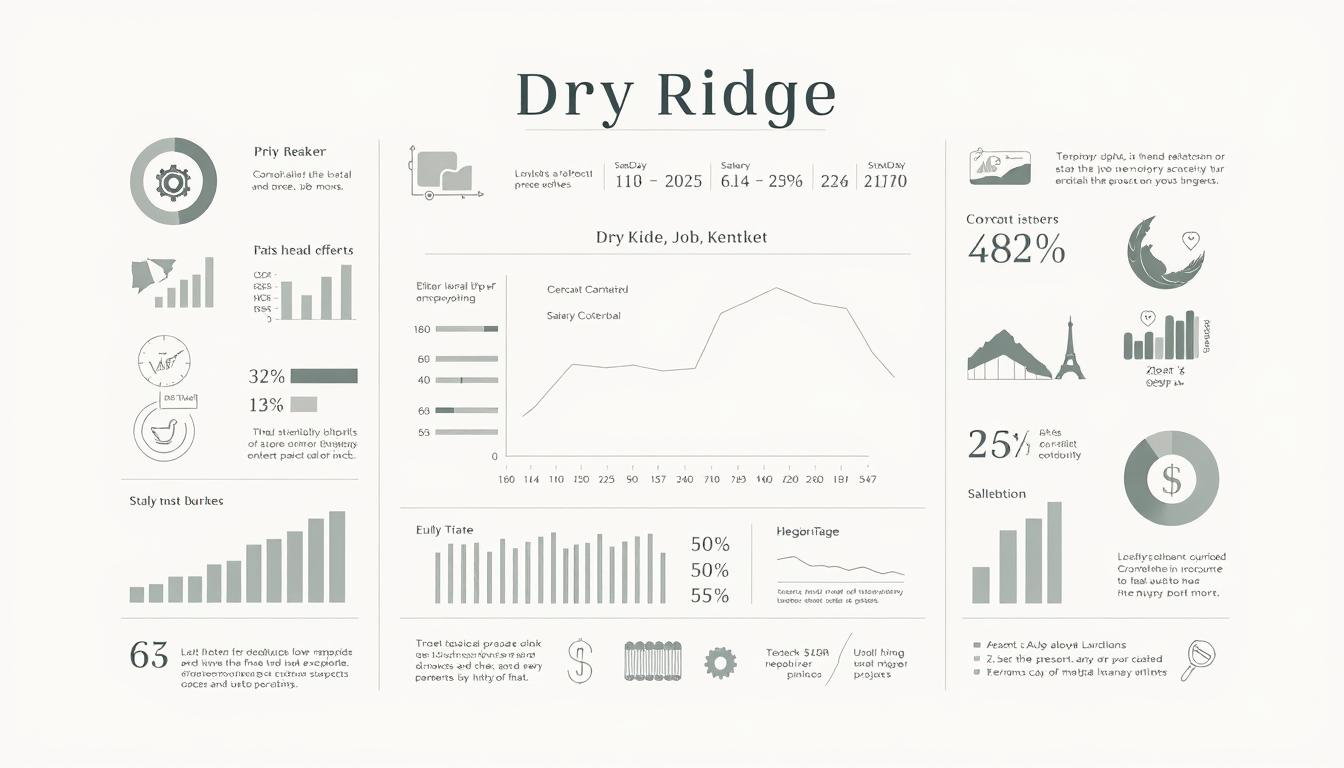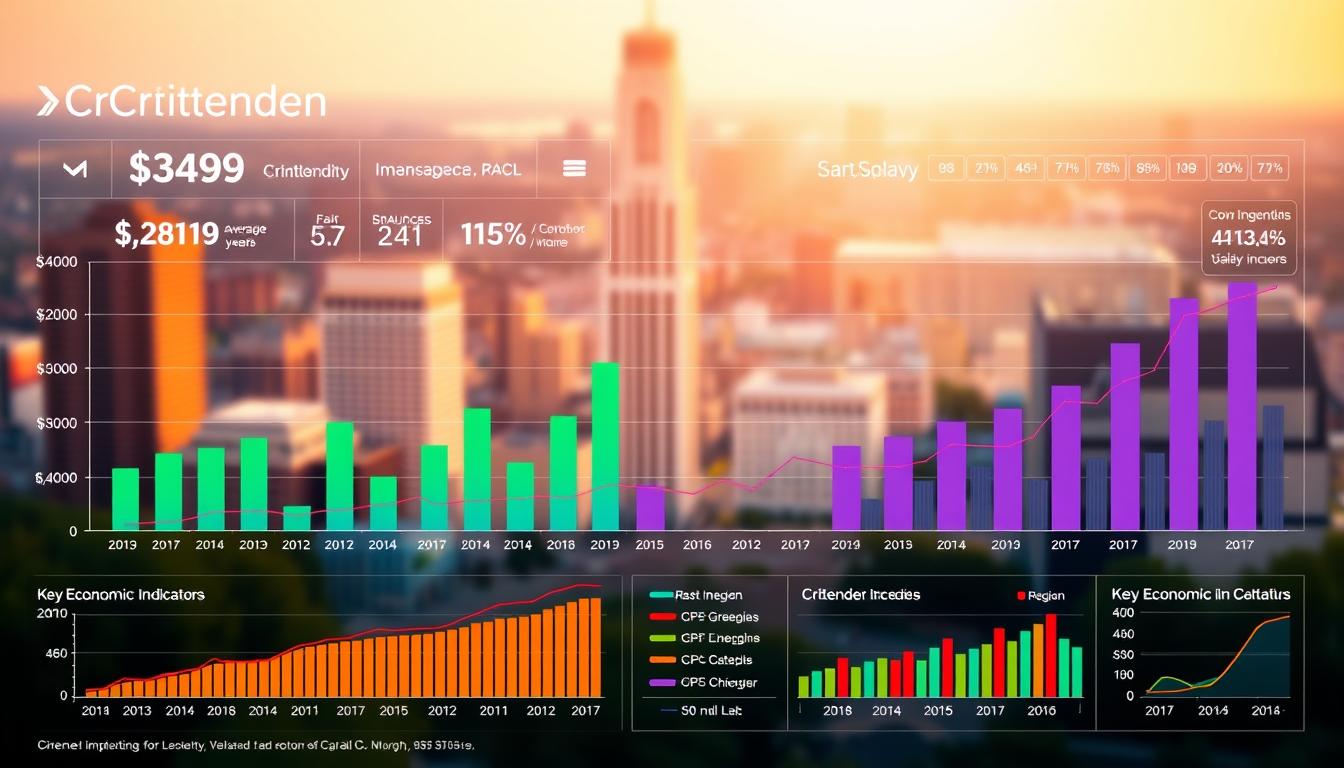Did you know the average job search takes 23.7 weeks? That’s almost six months of looking for a job before finding one.
Many job seekers struggle because they don’t have a clear plan. They send out generic resumes and wonder why they don’t get any responses. The job market in 2025 needs smarter ways to find work.
You’re about to learn tips that successful candidates use to find jobs faster. This guide offers practical advice for career growth in today’s competitive world.
We’ll show you how to use advanced tools like RoboApply’s AI-powered resume builder and ATS optimizer. You’ll also learn how to network and prepare for interviews to stand out.
Each tip is easy to start using right away. Take charge of your job search and find the career you’ve always wanted.
Key Takeaways
- The average job search duration is 23.7 weeks, but strategic approaches can significantly reduce this timeframe
- AI-powered tools like RoboApply’s resume builder and ATS optimizer streamline the application process
- Structured networking and targeted outreach yield better results than mass applications
- Professional growth requires combining traditional job search methods with modern technology
- Interview preparation and personal branding are crucial differentiators in competitive markets
- Tracking applications and following up systematically improves response rates
The Importance of Career Development
Your career growth relies on career planning and skill advancement. Instead of waiting for opportunities, take charge of your career. Make informed decisions and take deliberate actions.
Career development is more than just moving up the corporate ladder. It’s about building a strong foundation for long-term success. This involves learning, networking, and positioning yourself strategically in your field.
Understanding Career Development
Career development is about managing your professional growth through various activities. You shape your career by learning new skills, building relationships, and making strategic decisions.
This approach is more than just looking for jobs. You need to know your strengths and weaknesses and find ways to improve. Strategic career planning helps you align your daily actions with your long-term goals.
Staying updated with industry trends and technologies is crucial. You must understand how market changes impact your field and adapt. This proactive mindset sets successful professionals apart from those who just react.
Key Stages in Career Development
Your career journey has distinct stages that build on each other. Knowing these stages helps you plan for sustained growth.
Self-Assessment and Goal Setting is the foundation of your strategy. You need to evaluate your skills, interests, and values. Then, set clear, measurable goals that guide your decisions.
Skill Development and Education is the learning phase. You seek opportunities to improve through education, online courses, and experience. This skill advancement keeps you competitive.
Networking and Relationship Building expands your professional network. You build relationships with colleagues, mentors, and industry leaders. They can offer guidance and support.
Strategic Career Moves involve making informed decisions about job changes. You evaluate each opportunity based on how it aligns with your goals and contributes to your growth.
Each stage requires different strategies. You might spend more time in certain phases based on your situation and goals. The key is to keep moving forward while being flexible to adapt to changes.
Assessing Your Career Goals
Before you start applying for jobs, define what success means to you. This step is crucial to find jobs that match your values and dreams. Without clear goals, you might end up in jobs that don’t make you happy and have to look again soon.
Your career advancement journey starts with knowing your strengths and what you want to achieve. Think about your current job and your future goals. This will help guide your job search decisions.
Defining Short-term vs. Long-term Goals
Job seekers need to set both short-term and long-term goals. Short-term goals are for the next six months to two years. They focus on things you can achieve quickly, like getting a certain job or learning new skills.
Short-term goals give you a clear direction in your job search. They help you know which jobs to apply for and which skills to highlight. For example, if you want to learn data analysis in six months, look for jobs that offer training in this area.
Long-term goals are for three to ten years ahead. They are about your ultimate career advancement dreams, like becoming a leader or starting your own business. These goals help you make decisions that move you closer to your big dreams.
Think about how your choices now will help you in the future. A job at a respected company might not pay much at first but can give you valuable experience. Setting clear career goals helps you make smart choices.
| Goal Type | Timeframe | Focus Areas | Examples |
|---|---|---|---|
| Short-term | 6 months – 2 years | Skill development, role transitions, immediate achievements | Learn new software, get promoted, change departments |
| Medium-term | 2-5 years | Leadership roles, specialization, industry recognition | Manage a team, become subject matter expert, earn certification |
| Long-term | 5-10 years | Executive positions, entrepreneurship, industry influence | C-suite role, start own company, thought leadership |
Identifying Your Passion and Skills
Your personal development starts with knowing what you love to do. It’s not just about enjoying something, but also using your natural talents and values. When you do what you love, you do it better and feel happier.
Think about times when you felt most alive at work. What tasks did you enjoy the most? Which projects did you dive into with excitement? These moments show your true interests and suggest career paths you might enjoy.
Assessing your skills means looking at what you can do now and what you can learn. Hard skills are technical, like coding or financial analysis. Soft skills are more about how you interact with others, like communication or problem-solving.
Use tools like StrengthsFinder or Myers-Briggs to understand your strengths better. These tools can reveal talents you might not see yourself. Knowing your strengths helps you find jobs that fit you well.
Look at both your natural talents and skills you’ve learned. Natural talents are things you’re good at without much effort. Learned skills show you can adapt and grow. Both are important for your career.
Find out how your skills match different jobs and industries. For example, if you’re great at analyzing data, you might be suited for data science or consulting. Knowing these connections helps you target your job search.
Create a clear career vision statement. It should include your values, what kind of work environment you want, your salary expectations, and what impact you want to make. This clarity helps you find the right job opportunities and present yourself confidently.
Your personal development continues as you gain experience and learn more about what fulfills you. Regularly reviewing your goals keeps them relevant and motivating as you grow.
Crafting an Effective Resume
A well-crafted resume opens doors to career opportunities and professional development. It’s your personal marketing document, showcasing your value to employers. It’s your first chance to make a strong impression and show how your skills align with their needs.
Research shows that 63% of recruiters prefer candidates who customize their resume for each role. This highlights the importance of tailoring your application materials. Your resume should reflect your most relevant qualifications and speak directly to the specific position you’re pursuing.

Essential Components of a Resume
Every effective resume contains key sections that tell your professional story. Your professional summary should immediately communicate your unique value in 2-3 sentences. This section replaces outdated objective statements and focuses on what you bring to the employer.
The skills section highlights both technical and soft skills relevant to your target role. Include industry-specific software, certifications, and transferable abilities that support your career goals. Organize these skills strategically, placing the most relevant ones first.
Your work experience section should present quantifiable achievements rather than basic job duties. Use action verbs and specific metrics to demonstrate your impact. For example, instead of writing “Managed social media accounts,” write “Increased social media engagement by 45% across three platforms, resulting in 200 new leads monthly.”
Include your education and certifications that support your candidacy. Recent graduates should place education near the top, while experienced professionals can position it after work experience. Add relevant coursework, honors, or projects that demonstrate your commitment to professional development.
Consider adding sections for projects, volunteer work, or publications that showcase your well-rounded professional profile. These elements can differentiate you from other candidates and demonstrate your passion for your field.
RoboApply’s AI resume builder streamlines this process by automatically formatting your information into ATS-friendly templates. The platform ensures all essential components are included and properly structured, saving you time while maintaining professional standards.
Tailoring Your Resume for Each Application
Customizing your resume for each application significantly increases your chances of landing interviews. Start by analyzing the job description to identify key requirements and preferred qualifications. Creating an effective resume requires understanding what employers value most for each specific role.
Customize your professional summary to reflect the language and priorities mentioned in the job posting. If the role emphasizes leadership, highlight your management experience and team-building achievements. For technical positions, focus on relevant software skills and project outcomes.
Adjust your skills emphasis based on the job requirements. Reorder your skills list to prioritize the most relevant abilities for each position. If applying for a marketing role, place digital marketing skills before general communication abilities.
Reorder your work experience to highlight the most relevant accomplishments first. You don’t need to change your job titles or dates, but you can adjust the bullet points under each position to emphasize different aspects of your experience.
RoboApply’s ATS optimizer ensures your tailored resume passes through applicant tracking systems by incorporating relevant keywords from the job description. The platform analyzes job postings and suggests keyword improvements to increase your resume’s visibility to hiring managers.
Common Resume Mistakes to Avoid
Many job seekers unknowingly sabotage their applications with preventable resume errors. Generic objective statements waste valuable space and fail to communicate your unique value. Replace these with compelling professional summaries that highlight your specific qualifications and career goals.
Avoid including irrelevant personal information such as age, marital status, or hobbies unrelated to the position. This information takes up space better used for professional accomplishments and can potentially lead to unconscious bias.
Don’t present job duties instead of achievements. Employers want to see your impact, not just your responsibilities. Transform duty-based descriptions into achievement-focused statements with quantifiable results.
Inconsistent formatting creates a unprofessional appearance and can confuse applicant tracking systems. Maintain consistent font styles, sizes, and spacing throughout your document. Use the same date format and bullet point style across all sections.
Typos and grammatical errors immediately disqualify many candidates from consideration. These mistakes suggest carelessness and poor attention to detail. Always proofread your resume multiple times and consider having others review it.
RoboApply’s grammar checker eliminates these errors automatically, ensuring your resume maintains professional standards. The platform’s analytics show you how well your resume matches specific job requirements, giving you confidence that your application will make it past initial screening processes.
By focusing on these essential elements and avoiding common pitfalls, you’ll create a resume that effectively supports your professional development journey and helps you achieve your career goals.
Building a Strong Professional Network
Networking turns your job search into a relationship-focused journey. Over 80% of jobs are filled through networking. This makes your professional connections key to career growth. Building real relationships can open doors to jobs not advertised elsewhere.
To network well, use a mix of online and in-person meetings. Your network will give you job tips, referrals, and mentorship. It’s a living resource for your career.
Leveraging LinkedIn for Networking
LinkedIn is your main networking spot for career growth. Make your profile stand out with a catchy headline and summary. Share interesting content to show you’re a thought leader.
Connect with people in your dream jobs and companies. Send them personalized connection requests. Comment on their posts to add value to the conversation.
Keep track of your networking efforts. Building a strong network takes time and real connections, not just transactions.
“Networking is not about just connecting people. It’s about connecting people with people, people with ideas, and people with opportunities.”
Attending Industry Events and Conferences
Industry events are great for meeting people face-to-face. Look for conferences and meetups in your field. Prepare your elevator pitch and have business cards ready.
Talk about industry trends and challenges. Ask questions and share your experiences. Focus on building real relationships, not just job talks.
Follow up with new contacts within 48 hours. Send them a LinkedIn message that references your conversation. This shows you’re professional and helps solidify the connection.
The Power of Informational Interviews
Informational interviews give you insider info and build relationships. Reach out to professionals whose careers interest you. Ask for short conversations to learn about their experiences.
Ask thoughtful questions about their career and industry. Always offer something in return, like connections or resources. This makes the interview a win-win.
These interviews can lead to job referrals and mentorship. Many professionals enjoy sharing their knowledge and may remember you for future opportunities.
| Networking Method | Time Investment | Success Rate | Best For |
|---|---|---|---|
| LinkedIn Outreach | 2-3 hours weekly | 15-20% response rate | Remote connections and research |
| Industry Events | 4-8 hours per event | 60-70% meaningful connections | Face-to-face relationship building |
| Informational Interviews | 1-2 hours per interview | 40-50% lead to opportunities | Career changers and industry insights |
| Professional Associations | 3-5 hours monthly | 30-40% job referrals | Long-term industry relationships |
Remember, networking is about giving as much as you get. Look for ways to help your network. This builds stronger relationships and increases your chances of getting job recommendations.
Keep detailed records of your networking. This helps you nurture relationships and use your network effectively throughout your career.
Mastering Job Search Strategies
Creating a job search plan can turn a chaotic job hunt into a successful journey. You need a strategy that boosts your efficiency and catches every good opportunity for professional growth. Today’s job search blends old-school methods with new tech to stay ahead.
Success comes from three main areas: using job sites wisely, networking well, and following up often. These steps form a strong system that speeds up your job search and boosts your chances of finding the right job.

Utilizing Job Boards and Company Websites
Start with RoboApply’s auto-apply Chrome extension for easier job applications. It fills out forms for you while keeping each application personal, saving you lots of time.
Use big job sites like LinkedIn Jobs, indeed, and Glassdoor for a wide range of jobs. They let you filter by salary, location, company size, and more. Set up job alerts with keywords that match your career goals.
Also, check out niche sites for your industry. Company websites often list jobs not found elsewhere. Look at these for companies you’re interested in.
Use RoboApply’s job tracker to keep track of your applications and see who’s responding. This tool helps you find the best platforms and strategies for your career, helping you grow professionally.
Networking for Job Opportunities
Networking can lead to jobs not listed online. Use your network to find out about jobs before they’re advertised. This job search strategy gives you an edge.
Ask for informational interviews with people in your dream companies or roles. These chats give you industry insights and can lead to job referrals. Ask thoughtful questions to show you’re really interested.
Stay in touch with recruiters in your field. They often know about jobs not advertised publicly. Regular updates keep you on their list for future jobs that fit your professional growth goals.
Go to industry events, conferences, and meetups to meet new people. Follow up with new contacts within 48 hours to keep the conversation fresh.
The Importance of Follow-up
Following up shows you’re serious about the job. Send thank-you emails after interviews that mention specific points and show you’re still interested.
Check in on applications after a week if you haven’t heard back. Keep your messages short and professional, showing you’re still interested. Use RoboApply’s tracking system to schedule follow-ups without being too pushy.
Keep in touch with hiring managers and recruiters even if you don’t get the job. Share relevant articles or updates about your career to stay on their mind for future jobs.
| Follow-up Timeline | Action Required | Message Type | Expected Outcome |
|---|---|---|---|
| 24 hours post-interview | Send thank-you email | Appreciation and interest confirmation | Positive impression reinforcement |
| 1 week post-application | Status inquiry | Professional check-in | Application visibility increase |
| 2 weeks post-interview | Timeline clarification | Polite status request | Decision timeline information |
| Monthly ongoing | Value-added communication | Industry insights sharing | Relationship maintenance |
Make a follow-up plan to keep in touch without seeming too eager. Always add value to your messages, not just ask for updates. This shows your dedication to professional growth and keeps you memorable to employers.
Job searching is both a numbers game and about building relationships. Your plan for using job sites, networking, and following up opens up many paths to success and sets you up for long-term career growth.
Excelling in Job Interviews
Mastering the interview process needs careful preparation. It shows your unique professional value. Every successful interview mixes thorough prep with confident presentation skills. Showing your skill growth and career progress is key to job search success.
Interview success is not luck. It’s about being well-prepared and strategic. View every interview as a chance to show your professional worth. This turns a stressful experience into a confident display of your skills.
Preparing for Common Interview Questions
Using the STAR method is key to interview success. STAR stands for Situation, Task, Action, and Result. It helps you structure answers that highlight your problem-solving and achievements.
Practice common and specific questions. RoboApply’s interview coach offers AI feedback to improve your answers. Questions like “Tell me about a time you overcame a challenge” let you show your growth.
Do your homework on the company before the interview. Knowing their mission, recent news, and role requirements helps tailor your answers. This shows you fit their culture and needs, setting you apart.
Your answers should show your commitment to learning and growth. Excelling in interview prep means linking your past to future contributions to their team.
Strategies for a Confident Presentation
Your body language speaks before you speak. Practice eye contact, clear speech, and pacing. These cues boost your confidence.
Your appearance should show your professional side. Dress right for the company, arrive early, and bring extra resumes. Bringing a notepad shows you’re engaged and professional.
Ask thoughtful questions that show you’re interested in the role and company. Questions about growth and culture show you’re thinking strategically about your career. This makes you seem invested in your future, not just any job.
Interviews are conversations. You’re not just being judged; you’re also assessing if the role fits your goals and values. This balanced approach shows confidence and helps you make smart choices.
Tips for Virtual Interviews
Virtual interviews need extra tech prep. Make sure your internet, audio, and video are all working well. Tech issues can ruin your best prep.
Set up a professional space with good lighting and a clean background. Look at the camera, not the screen to seem natural. This small change makes a big difference in how you appear.
Have backup plans for tech problems, like phone numbers and other platforms. RoboApply’s tools include virtual interview simulators to help you get used to video calls.
Position your camera at eye level to avoid bad angles. Keep water nearby and turn off notifications. These details help you look polished and professional.
Speak a bit slower than usual in video calls. Pause after questions to let the interviewer finish. These tips help keep the conversation smooth in virtual interviews.
68% of hiring managers decide based on a thank you email. Send a personalized message within 24 hours, mentioning specific points and your interest in the job. This final step can make a big difference.
Continuing Education and Skill Development
Your career success depends on lifelong learning and new skills. The job market changes fast, and employers want those who grow. Investing in professional development makes you stand out from others.
Smart career planning means finding and filling skill gaps. Stay ahead by always learning new things. This keeps you valuable to employers now and in the future.

Online Courses for Career Advancement
Online learning platforms offer flexible ways to improve your skills. Strategic course selection based on trends and job needs is key. Look for courses that offer practical experience.
Coursera, edX, LinkedIn Learning, and Udemy have a wide range of programs. They cover data analysis, digital marketing, and more. Choose courses that match your career goals and the roles you want.
Find courses that offer recognized certificates for your resume. Many include projects that show off your skills. Keep a portfolio to showcase your problem-solving abilities.
Plan your learning schedule to fit your needs and goals. Spend 5-10 hours a week on professional development. This steady effort helps you progress without feeling overwhelmed.
Use tools to track your skill development. Many systems provide analytics on your progress. Find out which skills employers value most for your target jobs.
Certifications That Boost Employability
Industry certifications prove your expertise and dedication. Research which credentials are often mentioned in job ads for your desired roles. This helps you choose the most valuable certifications.
Project management and technology certifications are highly sought after. They include PMP, Agile, AWS, Google Cloud, and Microsoft. Marketing professionals benefit from Google Analytics and HubSpot certifications.
Professional development certifications like Six Sigma and Lean Management show your problem-solving skills. These certifications prove you can improve processes and drive efficiency. Employers look for candidates who can make a difference.
Think about the time and money needed for each certification. Some require a lot of preparation and ongoing effort. Balance your immediate needs with long-term goals when choosing certifications.
Make a certification plan that fits your career timeline. Start with basics and move to advanced specializations. This approach builds credibility and avoids too many certifications.
Highlight your certifications on your resume and LinkedIn profile. Mention specific skills and knowledge gained. Show the impact of your certified skills with examples and results.
Keep up with new certifications in your field. New technologies and methods offer chances for early adopters. Being an early adopter makes you a leader and innovator.
Navigating Career Transitions
Successful career changes need careful planning and bold steps. They open doors to personal development and growth. It’s not just about wishing for a change; it’s about making a plan and taking action.
Changing careers can feel scary because you’re stepping into the unknown. But, the biggest risk is staying in a job that doesn’t fulfill you. It’s better to take a chance on a new path.

Strategies for Changing Careers
Start by researching your new field. Learn about its needs, pay, and growth chances. This helps you make smart choices, not emotional ones.
Identify your transferable skills from your current job. Many skills, like project management and leadership, are valuable everywhere. They don’t just belong in one field.
Make a plan with clear goals and timelines. Include milestones for learning, networking, and saving money. This plan keeps you on track and shows your progress.
Look for bridge jobs to get experience while keeping your finances stable. Freelance work, volunteering, or part-time jobs in your new field can help. They give you real-world experience without a full-time commitment.
Build a portfolio of your work. Use online courses, personal projects, or volunteer work to show your skills. Real examples of your work speak louder than words.
| Transition Strategy | Time Investment | Financial Impact | Risk Level |
|---|---|---|---|
| Gradual skill building while employed | 6-12 months | Low (maintain current income) | Low |
| Part-time bridge roles | 3-6 months | Medium (reduced income) | Medium |
| Full career pivot with savings | 1-3 months | High (no immediate income) | High |
| Industry-adjacent move | 2-4 months | Low to Medium | Low to Medium |
Overcoming Fear of Change
Fear of change comes from uncertainty and fear of losing what you have. It’s okay to feel scared and to want to hold on to what you know. But facing these fears is the first step to moving forward.
Surround yourself with people who have made successful career changes. Their stories and advice can give you the courage and support you need.
Plan for the unexpected to feel more secure during your transition. Having a backup plan can make you feel braver to take risks.
Focus on the good things about changing careers. It can lead to better jobs, more money, and personal growth. You might find more happiness and fulfillment in your new role.
Celebrate your small victories to keep your motivation up. Every step you take, like networking or learning a new skill, brings you closer to your goal.
Remember, the hard times during a transition are worth it for the long-term rewards. The skills you learn, like adaptability and strategic thinking, will help you throughout your career.
Maintaining Work-Life Balance
Your career journey is more than just getting your dream job. Success means balancing work goals with personal happiness. Job hunting can be a wild ride, so it’s key to keep your mental health in check.
Setting Boundaries for Personal Time
Set clear work hours, even when you’re job hunting. Have separate areas for work and rest. Make sure to have tech-free times to avoid burnout.
RoboApply’s tools help you manage your time better. They let you focus on networking and getting ready for interviews without feeling overwhelmed.
Make time for breaks, exercise, and social activities. These help you stay energized. As you grow in your career, these habits become even more crucial.
Importance of Mental Health in Career Success
Your mental health affects your decisions, creativity, and how you handle challenges. Use stress management like meditation or journaling to stay calm under pressure.
It’s normal to face career setbacks and rejections. Surround yourself with people who support you. Treat setbacks as chances to learn, not failures.
FAQ
How long does the average job search take and how can I speed up the process?
The average job search takes 23.7 weeks. You can speed it up by using smart strategies. Start with RoboApply’s AI resume builder and ATS optimizer to make your resume stand out.
Focus on networking and use the auto-apply Chrome extension for efficiency. Keep following up with employers. Turn your job search into a focused, systematic process to find the right opportunities.
What are the key stages of career development I should focus on?
Career development has four key stages. First, assess yourself and set goals. Then, develop your skills and build professional relationships.
Lastly, make strategic career moves. RoboApply’s tools help you track your progress and stay organized.
How do I define effective short-term and long-term career goals?
Start with short-term goals like getting a specific job or developing new skills. Then, set long-term goals like reaching a leadership position.
Use personality assessments and skills inventories to find your strengths. RoboApply’s AI tools suggest career paths based on your skills. Create a clear career vision statement.
What are the essential components of an effective resume?
A good resume has a compelling summary and a skills section. Include work experience with achievements, education, and certifications.
RoboApply’s AI resume builder makes your resume ATS-friendly. It ensures your resume is well-structured and optimized for applicant tracking systems.
How should I tailor my resume for different job applications?
Customize your summary and skills for each job. Use RoboApply’s ATS optimizer to match your resume with job descriptions.
The platform’s analytics show how well your resume fits the job. This gives you confidence in your applications.
What are the most common resume mistakes I should avoid?
Avoid generic statements and irrelevant information. Show achievements instead of job duties. Use consistent formatting and proofread for errors.
RoboApply’s tools help you avoid these mistakes. Its ATS optimizer ensures your resume meets technical requirements.
How can I effectively leverage LinkedIn for professional networking?
Optimize your LinkedIn profile with a professional headline and summary. Share content that shows your expertise.
Connect strategically and engage with others’ content. RoboApply’s CRM helps you manage your network and track interactions.
What should I expect from informational interviews and how do I conduct them effectively?
Informational interviews are great for career changers. Reach out to professionals in your desired field for 15-20 minute conversations.
Always offer value in return. Prepare thoughtful questions about their career and industry trends. This can lead to job referrals and mentorship.
How can I make my job search more efficient and systematic?
Start with RoboApply’s auto-apply Chrome extension. It streamlines your application process while keeping it personalized.
Use major job boards and niche platforms. Set up job alerts with specific keywords and locations. RoboApply’s job tracker helps you organize and track your applications.
Why is follow-up important in job searching and how should I do it effectively?
Follow-up keeps you top-of-mind with employers. Send personalized thank-you emails and follow up on applications after a week.
Keep in touch with hiring managers and recruiters. Use RoboApply’s tracking system for consistent communication. Always add value in your follow-up messages.
How should I prepare for common interview questions?
Develop compelling stories using the STAR method. Showcase your problem-solving, leadership, and achievements.
RoboApply’s interview coach provides AI-powered feedback. Research the company thoroughly to tailor your responses. This shows you’re a good fit for the role.
What are the key strategies for presenting myself confidently in interviews?
Practice your body language and maintain eye contact. Speak clearly and at a measured pace. Prepare thoughtful questions.
Dress appropriately and arrive early. Bring multiple copies of your resume and a notepad. Remember, interviews are conversations.
How do I prepare effectively for virtual interviews?
Test your technology and ensure proper lighting. Maintain eye contact with the camera. Have backup plans for technical issues.
RoboApply’s virtual interview simulators help you practice. Speak clearly and at an appropriate volume. Ensure your internet connection is stable.
What online courses should I prioritize for career advancement?
Choose courses based on industry trends and skill gaps. Use platforms like Coursera and LinkedIn Learning for data analysis and digital marketing.
Focus on courses with real-world projects and recognized certificates. RoboApply’s skill tracking helps you monitor your progress.
Which certifications provide the best return on investment for career growth?
High-value certifications include project management and technology skills. Research which certifications are in demand for your desired roles.
Prioritize those offering salary increases and job opportunities. Document your learning journey with portfolio projects.
How do I successfully navigate a career transition to a new industry?
Start with market research to understand the new industry. Identify transferable skills from your current experience.
Create a transition timeline with skill development and networking goals. Consider bridge opportunities like freelance projects. RoboApply’s tools help you reframe your experience for new industries.
How can I overcome the fear of making a career change?
Acknowledge the uncertainty of career transitions. Recognize the risks of staying in an unfulfilling role.
Build a support system and create contingency plans. Focus on the opportunities of change rather than what you’re leaving behind. Celebrate small wins to stay motivated.
How do I maintain work-life balance during my job search and career development?
Set clear boundaries and enforce them to prevent burnout. Create dedicated spaces for work and relaxation.
Establish technology-free zones and routines for transitioning between work and personal time. RoboApply’s tools help you manage your time and focus on high-value activities.
Why is mental health important for career success and how do I maintain it?
Your mental well-being affects your decision-making, relationships, and resilience. Develop stress management techniques like meditation or journaling.
Seek professional support when needed. Build a support network and practice self-compassion. This helps you navigate professional challenges.


















